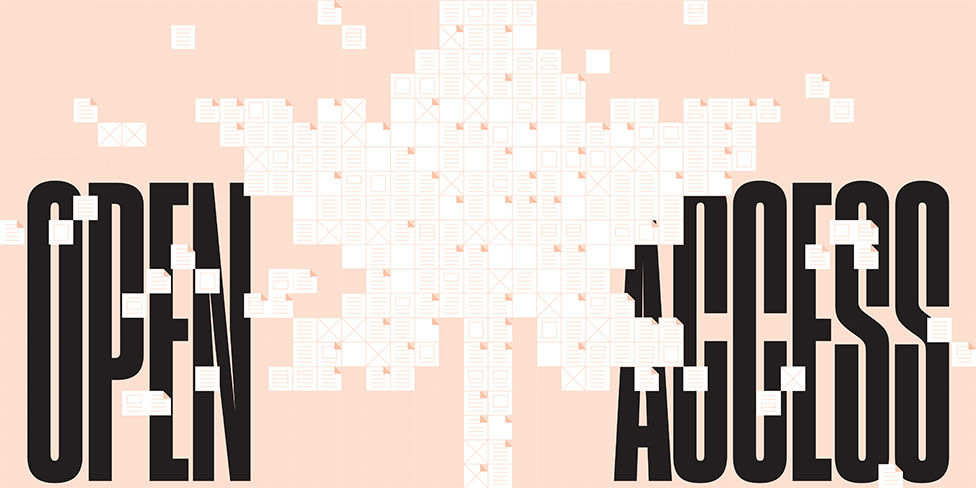Open access: a diamond in the rough?
Science policy is increasingly talking about diamond open access. But what’s it all about?

You may have heard of green, gold, and even black open access, but now the world of scientific publishing has a new path to consider. Diamond open access (sometimes called platinum) is an emerging model that enables researchers to publish in journals or other platforms free of charge using an open access license. Universities, learned societies and granting agencies are just a few of the players in the research ecosystem guaranteeing financing for diamond open access upfront out of their own pockets. Journals and platforms choosing the diamond level can also generate income by charging for value-added services in a freemium model.
Diamond open access is free for both authors and readers. This distinguishes it from the gold model, which has publication fees – the famous Article Processing Charges (APCs). APCs are charged to scientists in exchange for free distribution of their articles through major commercial publishers like Elsevier and Springer. They’re common in certain disciplines, like biomedicine.
Diamond open access is a core principle of the Réseau québécois de recherche et de mutualisation pour les revues scientifiques, the creation of which was announced at the end of May. Led by the Fonds de recherche du Québec (FRQ) and granted $10 million over five years, the Réseau aims to “support French-language scientific publication in the Quebec academic system” by offering, among other things, “sustained support to help Quebec scientific journals establish [this open-access model].”
“As noted by UNESCO, everyone has a right to access scholarly output,” said Mylène Deschênes, FRQ’s director of ethics and legal affairs. “After all, those articles are publicly funded!” The gold model provides this access, but it also imposes thousands of dollars in APCs on average. These fees, too, come from public funding. As such, this pay-to-publish model burdens research budgets.
The FRQ isn’t the only granting agency to push back against the status quo. In France, the French National Centre for Scientific Research has been encouraging the diamond model among its researchers since 2022. “Given the exorbitant profit margins generated by major commercial publishers [exceeding 30 per cent], it’s apparent that APCs are not reflective of the real or fair cost of publishing an article,” said Ms. Deschênes.
Breaking the monopoly
Research communities are likewise raising these concerns. In Fall 2023, librarians and editors-in-chief gathered at the Symposium québécois des revues savantes to discuss current issues in academic publishing. Their recommendations, as unveiled at the most recent Acfas conference, place considerable emphasis on diamond open access. As they noted in their summary report, diamond open access is “the path advocated for by independent journals to build a fair scholarly publishing ecosystem.”
Tanja Niemann, executive director of the Consortium Érudit and co-organizer of the Acfas conference, feels it’s essential for research communities to reclaim distribution channels. “That was the idea at the heart of Érudit’s creation 25 years ago during the digital transition,” she said. “A new crisis dawns as journals are forced into open access, and we should be able to offer the same infrastructure and services as major commercial publishers.”
Development of this “competitive non-commercial environment” is powerfully incentivized. “If researchers can’t access a system that guarantees good discoverability for their publications, they won’t get on board,” said Ms. Niemann. This is especially relevant given that researchers are receptive to these changes.
In a survey from Canada’s three federal research funding agencies on their open access policy review, diamond open access was the model most supported by respondents (more than 55 per cent).
Ms. Niemann believes that transformative agreements, though abundant, send conflicting messages that favour the status quo. These agreements enable university libraries to pay for access to journals controlled by major commercial publishers in exchange for discounts on open access publication fees ordinarily paid by affiliated scientists. However, two researchers from the University of Ottawa recently found that transformative agreements “create inequalities and barriers that exclude many people from the research process, particularly in underfunded disciplines and institutions.”
For example, Université Laval provides a list of article treatment fee discounts. A spokesperson said in an email that ULaval’s library is negotiating “the best subscription fee for an informational resource” in accordance with the negotiation principles set forth in 2020 by the Canadian Research Knowledge Network. ULaval’s scholarly publications thus remain outside the university’s control.
A passing trend?
Yves Gingras, sociologist and science historian at Université du Québec à Montréal, views these developments with distrust. He wonders whether the objectives pursued by diamond open access proponents are actually sound.
“My impression is that we’re looking at a trend,” he said. “A handful of people are running in one direction and everyone follows the pack. Few have begun by asking fundamental questions, like: who is actually calling for these changes? Why? To what end?” Dr. Gingras himself leans more toward green open access, where articles are published without access restrictions in an institutional or disciplinary repository and not necessarily in an open-access journal. “To be clear,” he said, “I am not against open access in and of itself [in the past, he has shown that open access articles are cited more often]. What I can’t get on board with is interfering with a generally stable system on the pretext of accommodating citizens who don’t have the expertise required to understand most scientific publications. Granting bodies, meanwhile, are currently struggling to properly fund research. I don’t see how they can take on new initiatives.” Virtuous though they may be.
Featured Jobs
- Psychology - Assistant Professor (Speech-Language Pathology)University of Victoria
- Education - (2) Assistant or Associate Professors, Teaching Scholars (Educational Leadership)Western University
- Canada Excellence Research Chair in Computational Social Science, AI, and Democracy (Associate or Full Professor)McGill University
- Business – Lecturer or Assistant Professor, 2-year term (Strategic Management) McMaster University
- Veterinary Medicine - Faculty Position (Large Animal Internal Medicine) University of Saskatchewan















Post a comment
University Affairs moderates all comments according to the following guidelines. If approved, comments generally appear within one business day. We may republish particularly insightful remarks in our print edition or elsewhere.
4 Comments
For years I did not add publication costs to grant applications; basically none of the top journals in my field had an open access model. Few journals were online. The main route tor keeping up with literature was via library visits, and arduous use of collected abstracts. I believe publicly funded research should be open access through the APC model with charges payed by the granting agencies. Non-funded research could be covered by the universities and/or general employers. A fraction of the money currently spent on gardening, and land scapping, etc. could go towards research publications. Perhaps, one issue is that research is undervalued by administrators overall unless ( its so-called blue sky?). In my country, there has long been unequal opportunity for open access publication for the junior academics and those condemned as teaching staff and mere content creators. How about a publications budget for each university department adjusted for size. As an academic, one is not bothered about ministerial/political discusions with the likes of Elsevier. Thanks.
UK Academic says ” I believe publicly funded research should be open access through the APC model with charges payed by the granting agencies.” I beg to differ. All research could be open access through global preprint archives (e.g. arXiv), interoperable institutional repositories (e.g. Univ. of Southampton, IISc) or global repositories like BASE, Bielefeld. Another option is non-APC OA journals, many of which are communjty-led or publicly funded (such as the journals published by India’s CSIR). Paying APC to journal publishers, especially grants obtained from funding agencies or goverrnment bodies, will only enrich the publishers, some of whom are making huge profits already through selling researchers’ work back to them (through their libraries). If a researcher’s grant comes fro taxpayers’ money, then it will be immoral and downright unethical to use that money to get one’s paper published in a journal of one’s choice when so many alternative ways are available to make the results known to the rest of the world without paying a penny. The taxpayers’ money can be used far more usefully (e.g. improving hygeine, public health and education).
More than a decade ago we listened to the scientific European Psychology community and founded PsychOpen.eu, a “diamond” publication platform (no fee for readers or authors). It is very successful. If you are interested in the community’s viewpoints, see “Proceedings of the Workshop on European Psychology Publication Issues” edited by Martin Uhl and myself (free in psycharchives.org).
Thank you for this post and for discussing the merits of Diamond OA. Diamond OA can be viable in certain contexts but the challenge of finding ongoing funding to support the model remains a challenge.
In Canada, most journals are either independent or produced by small, typically not-for-profit (NFP) publishers and university presses that operate on thin margins to support their operations. While Diamond models may work for certain smaller volunteer-run journals in the short-term, larger journals (including NFPs) that are supported by full-time staff are less likely to be viable under a Diamond OA model unless sufficient funding to support their operations is available. Long-term, sustainable funding is essential for scholarly publications since journals are required to preserve the scholarly record forever and lack of funding could risk the loss of certain journals and their communities.
If dedicated funds were made available to ensure the viability of journals over many years, then Diamond OA would be an excellent approach but under the current funding structure, other models of supporting OA journals still need to be considered in concert with Diamond OA.
Michael Donaldson,
Director of Strategic Initiatives,
Canadian Science Publishing (an independent and not-for-profit science publisher)